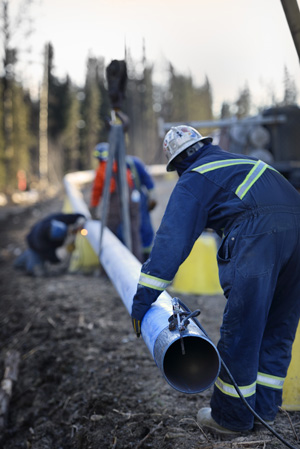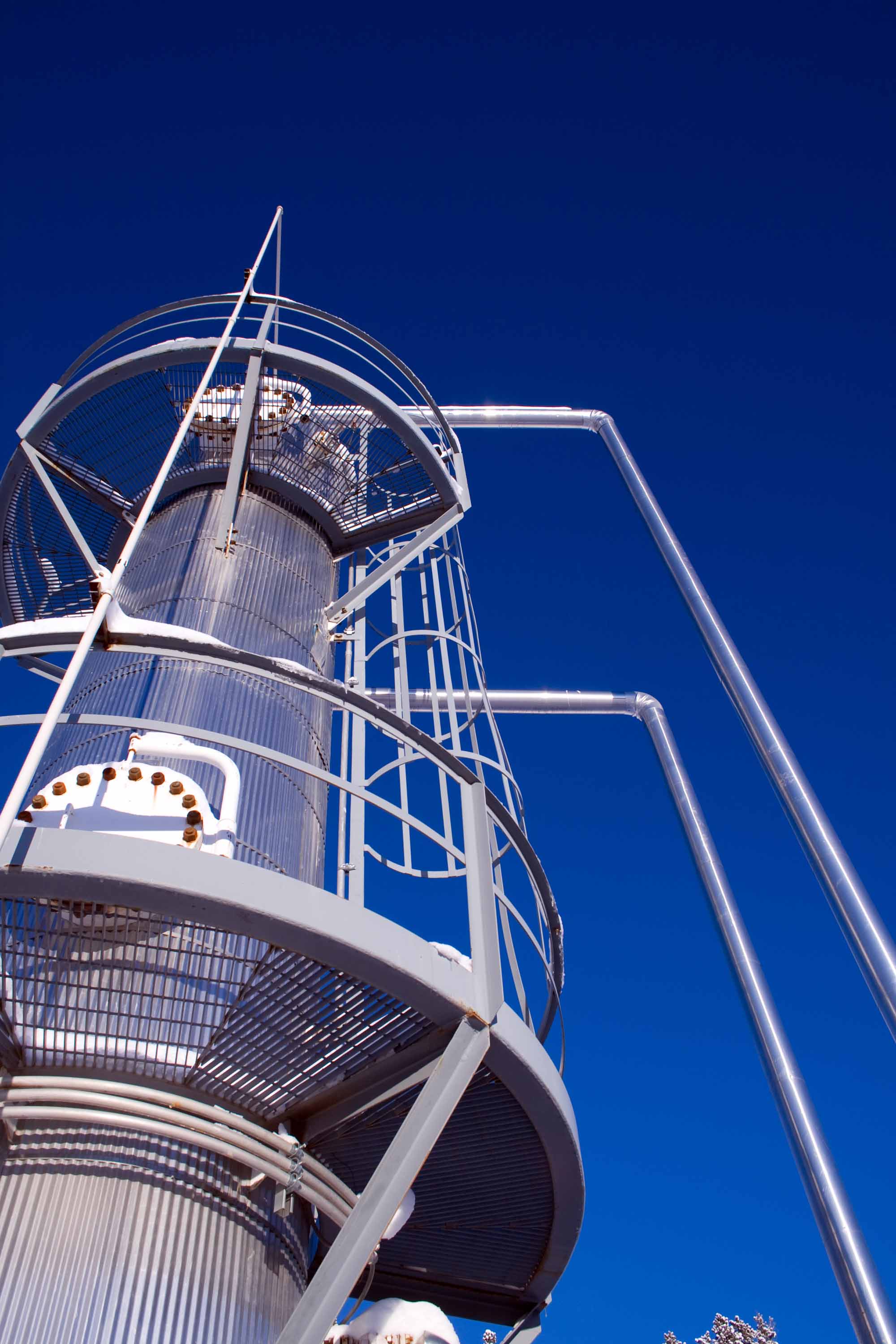Wiebo Arienes Ludwig, minister (born 19 December 1941 in the Netherlands; died 9 April 2012 near Hythe, AB). Wiebo Ludwig was an environmental activist and the leader of a small Christian community. He is best known for his fight against the oil and gas industry, which he claimed was responsible for numerous human and animal miscarriages at his farm. Ludwig was convicted of several counts related to the intentional sabotage of oil and gas wells in northwestern Alberta. He was suspected in a separate series of bombings and sabotage that occurred in British Columbia. Ludwig had long asserted that the oil and gas industry was responsible for poisoning his family. He was also the target of an RCMP “dirty tricks” campaign.
Early Life and Education
Wiebo Ludwig was born in the Netherlands during the Second World War, the youngest of eight children. His father was a war hero and leader in the Dutch Resistance. His family immigrated to Canada in 1952, when Ludwig was ten years old. One of his schoolteachers “Canadianized” his name as “Bill,” which he would go by for part of his life. Ludwig’s father worked as a tailor to support his large family, which lived in Sylvan Lake and Red Deer, Alberta. Ludwig demonstrated an interest in his Dutch Reformed faith from a very early age and took his beliefs quite seriously.
At 15, Ludwig left home and took odd jobs as a logger and an apprentice printer before joining the Royal Canadian Navy, where he trained as a scuba diver.
Ludwig left the navy after two years of service. In the summer of 1962, he attended a church camp in Red Deer where the Rev. B.J. Haan of Dordt College in Sioux Center, Iowa, was seeking recruits. While attending Dordt College, Ludwig met and fell in love with Haan’s daughter, Mamie, whom he would marry in 1968. The couple would have eleven children. He was accepted to study at the Christian Reformed Church’s Calvin Theological Seminary in Grand Rapids, Michigan.
Ministry
Wiebo Ludwig often came into conflict with his professors and was not initially recommended for ordination. His views on male-female relationships were described as being too conservative. Ultimately, Ludwig was ordained and took his first posting in Thunder Bay. Ludwig’s inflexible style caused conflict with his congregation, and it wasn’t long before he took on a new posting in Goderich, Ontario. This too brought on conflict. Physical punishments, including beating and head-shavings, were reported to have occurred at this time, with Ludwig both providing and receiving these punishments. These conflicts eventually led Ludwig to move his family and the family of his closest supporter to Grand Prairie, Alberta, in 1985.
Environmental Activism and Legal Troubles
Fossil fuel energy companies were already operating in the Peace River area when Ludwig moved there, but it was around 1990 that they began exploring the area close to Ludwig’s farm, which is rich in natural gas. The Alberta Energy and Utilities Board had allowed ten gas wells to be developed within two kilometres of Ludwig’s Trickle Creek farm. Ludwig tried to raise concerns about the effects of sour gas. Sour gas is natural gas that has high concentrations of hydrogen sulfide, a potent neurotoxin. It has been described as a cyanide-like poison. Roughly one-third of the natural gas in Alberta and British Columbia is considered sour. Between 1990 and 1996, there were several gas leaks near Ludwig’s property, which were blamed for dozens of animal deaths and stillbirths, as well as two miscarriages. Ludwig and his family said that they first became aware of the problem in 1991 when they lost several lambs after a gas leak near their property. Ludwig estimated that 60 per cent of his ewes had miscarried.
A 1998 Alberta government study into a gas leak revealed burning off the gas had led to the deaths of area livestock, as well as birth defects and deformities afterward.
At first, Wiebo Ludwig attempted to draw attention to what was happening through conventional channels, including bringing it to the attention of the Alberta government. When this failed, he began to take more unconventional actions, including releasing a video titled “Home Sour Home” and deliberately spilling sour crude oil on the carpets of a government office building in Grand Prairie.
In 1996, two companies proposed further natural gas exploration near Trickle Creek. Ludwig warned them not to and in one case barricaded a road. In 1998, one of Ludwig’s grandchildren was delivered stillborn, a death he blamed on the oil and gas industry. During this time, the Alberta Energy Company attempted to buy Ludwig’s farm, but negotiations failed. Two days later, two wells owned by the company, some 30 kilometres from Trickle Creek, were destroyed in bombings.
By 1999, more than 160 acts of sabotage or threats had been reported in the area around Trickle Creek farm. The Alberta Energy Company had offered Wiebo Ludwig $800,000 for their property. Still, Ludwig refused on account of the company’s stipulations, including that they move out of the area permanently and further educate their children that there had never been any environmental problems in the area around Trickle Creek farm. A 1999 Alberta government study found higher rates of birth defects and heart defects in the area around Grande Prairie than in any other part of the province.
RCMP “Dirty Tricks” and Shooting of Karman Willis
After the stillborn delivery of one of his grandchildren, the RCMP charged Wiebo Ludwig with an attack on a Suncor well that occurred the very next day. At a January 1999 bail hearing, Ludwig’s lawyers countered that the RCMP had colluded with Alberta Energy Company to bomb one of the company’s sheds as part of a “dirty tricks” campaign against Ludwig. At court, the Crown prosecutor was forced to admit this was the case.
On 20 June 1999, two pickup trucks drove onto the Trickle Creek farm. They were driven by joyriding teenagers. Unbeknownst to the teens, some of Wiebo Ludwig’s children were camping in a tent and were nearly run over by one of the pickups. Shots were fired at the trucks, and two of the teens were hit. Sixteen-year-old Karman Willis was killed. Police never identified the shooter. Ludwig denied that he or anyone living at Trickle Creek had fired the shots. In 2007, Ludwig demanded a formal inquiry into what had occurred, but this was denied by the RCMP. It was later revealed that the RCMP waited 12 hours before starting their investigation. The case remains unsolved to this day.
In May of 2000, Ludwig was found guilty of five offenses from a list of 37 charges, including blowing up a gas well, vandalizing another and instructing a police informant on how to obtain dynamite. He was sentenced to 28 months but only served 18, though he had been facing up to 14 years. The government’s case against Ludwig was beset by numerous problems, including the use of an unreliable informant with severe cognitive impairments and a clear financial motive to testify against Ludwig. In addition, audio evidence meant to support the Crown’s case was of such poor quality that it was difficult to determine exactly what was said.
Encana Bombings
In 2008, several anonymous letters to local media warned Encana, a petroleum company, to cease operations in and around Tomslake, BC, south of Dawson Creek and close to Trickle Creek farm. Shortly after those letters were published, six bombings struck pipelines owned by Encana. In September 2009, Ludwig wrote an open letter to the bombers, asking them to stop, noting his sympathy for their cause. Ludwig was arrested in 2010 on suspicion that he was involved in the bombings, but this was never proven. The RCMP searched Trickle Creek in January 2010 but found no evidence, and Ludwig was released.
Death
Wiebo Ludwig died of cancer on 9 April 2012 at his farm in northern Alberta.

 Share on Facebook
Share on Facebook Share on X
Share on X Share by Email
Share by Email Share on Google Classroom
Share on Google Classroom






